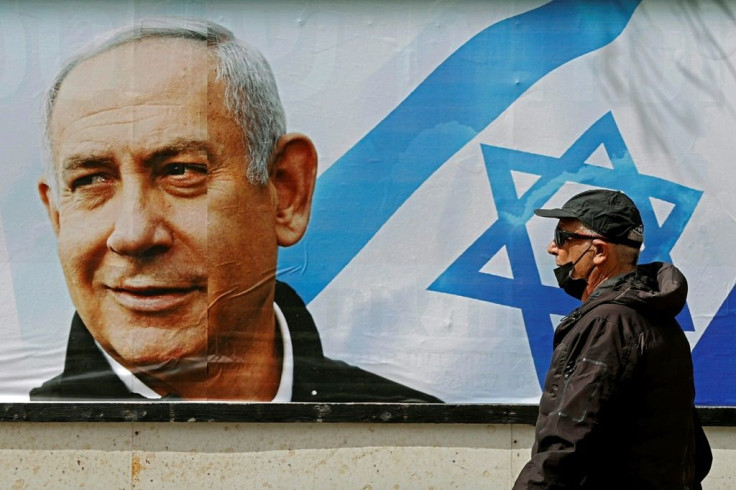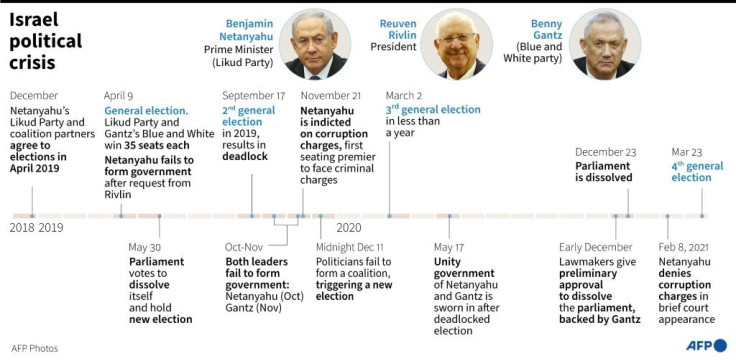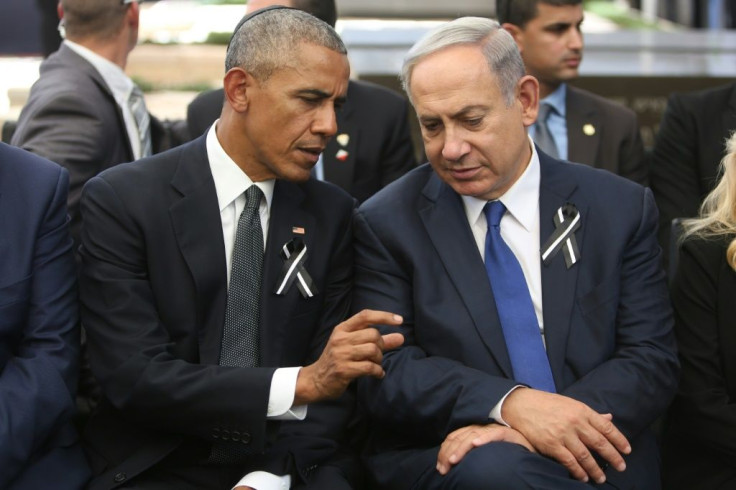Netanyahu: Master Politician Fights To The End
Benjamin Netanyahu, who edged closer on Sunday to being toppled as Israel's premier, has headed the Jewish state's government for a record 12 consecutive years.
The wily 71-year-old, widely known as Bibi, has clung to power through several conflicts and a long period of political turmoil, despite also facing trial for alleged fraud, bribery and breach of trust -- charges he denies.
But in March, the master political survivor faced another setback, failing again to achieve a conclusive result in Israel's fourth election in less than two years.
A hardliner who has repeatedly convinced voters only he can keep Israel safe from threats including Palestinian militants and Iran, Netanyahu took another political hit on Sunday.
Hardliner and former Netanyahu ally Naftali Bennett's announcement that he would join a coalition alongside centrist opposition leader Yaid Lapid threatens to end the rule of Israel's longest-serving leader.

Netanyahu immediately lashed out, calling the idea "a danger for the security of Israel".
Lapid has until Wednesday evening to form a government.
Netanyahu is the son of a historian who was active in right-wing Zionist groups, an ideological inheritance that helped shape the premier's political career.
Addressing the World Holocaust Forum last year, Netanyahu said the Jewish people must "always take seriously the threats of those who seek our destruction".

He warned Israelis "to confront threats even when they are small and, above all, to always have the power to defend ourselves by ourselves".
An occasional cigar smoker with a husky voice and silver comb-over, the broad, burly and square-jawed Netanyahu has two sons with his wife Sara and a daughter from a previous marriage.
His brother, Yonatan, was the only Israeli soldier killed in a 1976 commando raid to free hostages at Uganda's Entebbe airport.
Netanyahu called the event, which marked him deeply, "a very dramatic national experience" and "one of great personal consequence".
He was raised partly in the United States and graduated from the prestigious Massachusetts Institute of Technology.
His fluent English made him a fixture on US television, defending Israeli policies throughout the late 1980s and early 1990s, exposure that raised his profile both at home and abroad.

A sceptic of the Oslo Peace Accords, Netanyahu became Likud's leader in 1993 and led the party to victory as Israel's youngest-ever prime minister in 1996, aged 46.
He lost power in 1999, but regained it 10 years later and has not relinquished it since, despite being the first sitting Israeli prime minister indicted while in office.
In recent years, Netanyahu has clinched historic normalisation agreements with four Arab states and unrolled a world-beating Covid-19 vaccination campaign.
But he has not engaged in substantive peace talks with the Palestinians, who have been angered by a boom in expansion of Israel's illegal West Bank settlements under Netanyahu's watch.
The latest developments follow weeks of escalating tensions between Israel and the Palestinians, which peaked in an 11-day exchange of rocket fire from Gaza and devastating Israeli air strikes.
Israeli strikes on Gaza killed 254 Palestinians, including 66 children, health officials said.
Israeli medics said rockets and other fire from Gaza claimed 12 lives in Israel, including one child and an Arab-Israeli teenager, before a May 21 truce.
The fighting, as well as violence in the occupied West Bank and in mixed Jewish-Arab Israeli towns, initially appeared to strengthen Netanyahu's grip on power.
But political scientist Gayil Talshir at the Hebrew University told AFP on Sunday that Israel was now "closer than ever" to a coalition of change.
"Netanyahu is in a desperate position," she said.
Netanyahu, who has long branded himself as "Mr Security", has frequently warned of the threat posed by Lebanese Shiite Muslim group Hezbollah and its backer Iran -- a regime he calls the greatest threat to the Jewish people since Nazi Germany.
Thwarting Iran's alleged nuclear weapons programme has become a centrepiece of his foreign policy.
But he has on occasion angered Israeli allies.
In one controversial episode, he addressed a joint session of the US Congress in 2015 without having been invited by then-president Barack Obama -- using the platform to condemn Obama's nuclear negotiations with Iran.
Obama wrote in his presidential memoir, "A Promised Land", that Netanyahu's "vision of himself as the chief defender of the Jewish people against calamity allowed him to justify almost anything that would keep him in power."
© Copyright AFP {{Year}}. All rights reserved.





















